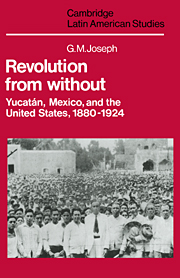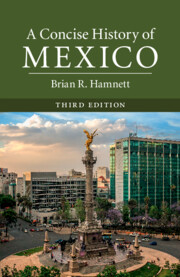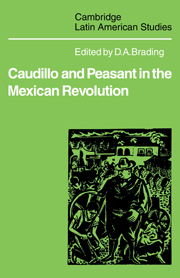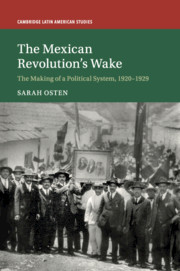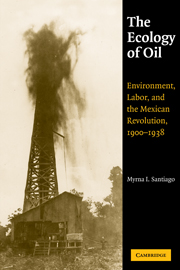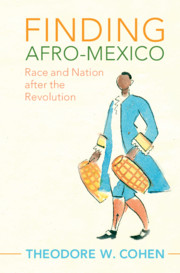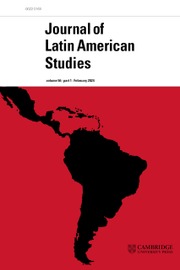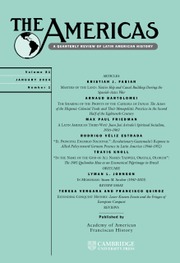Revolution from Without
Yucatán, Mexico, and the United States, 1880–1924
£105.00
Part of Cambridge Latin American Studies
- Author: G. M. Joseph
- Date Published: May 1982
- availability: Available
- format: Hardback
- isbn: 9780521235167
£
105.00
Hardback
Looking for an inspection copy?
This title is not currently available on inspection
-
By focusing on Yucatan, this history of the Mexican Revolution not only advances the understanding of the Revolution in that region but also contributes to the understanding of the Revolution as a whole. If historians agree on anything in the highly charged field of Mexican revolutionary history, it is that the Revolution can no longer be viewed as a monolithic event. It was a series of regional phenomena, each governed by a set of local social, economic, political, geographical, and cultural factors. Thus far, historians have concentrated on the victorious caudilloled armies of the north, which was the birthplace of the Revolution, or on the popular social movements of central Mexico, most notably Zapatismo, the agrarian movements of Veracruz and Michoacan, and the more widespread Cristero rebellion. In bypassing southeastern Mexico, modern writers seem to have concurred with the assessment of some contemporary observers that, in the remote Yucatan peninsula, the Revolution followed a strange and exceptional course. Professor Joseph shows that in certain respects, Yucatan's revolutionary experience was indeed unique. It was later to arrive, less violent, and probably more radical in its first decade than it was elsewhere in the republic. Although Yucatan was not important in the genesis and early development of the Revolution, it became a celebrated social laboratory, first for bourgeois reform under Constitutionalist general Salvador Alvarado, and later for 'socialist' experiment under civilian governor Felipe Carrillo Puerto. Professor Joseph argues that the Yucatecan case has important implications for understanding such central problems as export dependency and regional development, agrarian reform, mass mobilization and caciquismo (bossism), and the relationship between revolutionary ideology and practice.
Customer reviews
Not yet reviewed
Be the first to review
Review was not posted due to profanity
×Product details
- Date Published: May 1982
- format: Hardback
- isbn: 9780521235167
- length: 428 pages
- dimensions: 210 x 138 x 32 mm
- weight: 0.631kg
- availability: Available
Table of Contents
List of tables and figures
Preface
Acknowledgments
Prologue: Yucatán receives a revolution
Part I. The Parameters of Revolution:
1. Plant and plantation: the development of a monocrop economy
2. The henequen boom: oligarchy and informal empire, 1880–1915
3. The revolutionary equation within Yucatán: the problem of mobilization
Part II. The Bourgeois Revolution, 1915–1918:
4. Salvador Alvarado and bourgeois revolution from without
5. The theory and practice of bourgeois reform: land and the export economy
6. The breakdown of bourgeois revolution, 1918–1920
Part III. The Socialist Revolution, 1920–1923:
7. Felipe Carrillo Puerto and the rise of Yucatecan socialism
8. The ideology and praxis of a socialist revolution: agrarian reform and the henequen industry
9. The failure of revolution from within, 1923–1924
Epilogue
Appendix
Abbreviations used in notes
Notes
Select bibliography
Index.
Sorry, this resource is locked
Please register or sign in to request access. If you are having problems accessing these resources please email [email protected]
Register Sign in» Proceed
You are now leaving the Cambridge University Press website. Your eBook purchase and download will be completed by our partner www.ebooks.com. Please see the permission section of the www.ebooks.com catalogue page for details of the print & copy limits on our eBooks.
Continue ×Are you sure you want to delete your account?
This cannot be undone.
Thank you for your feedback which will help us improve our service.
If you requested a response, we will make sure to get back to you shortly.
×
